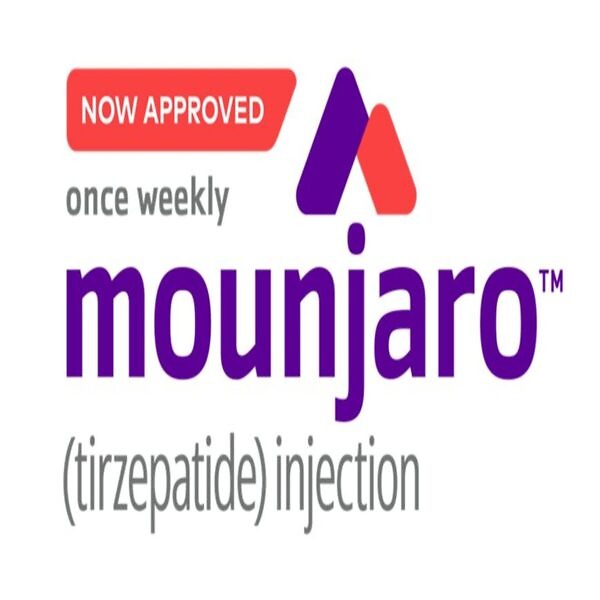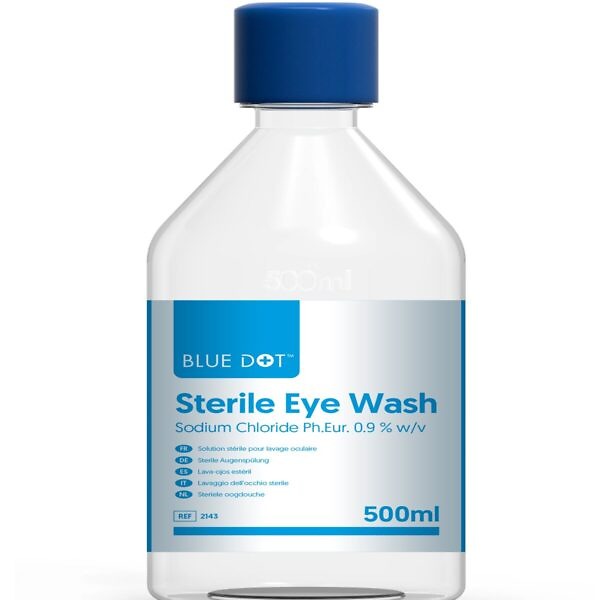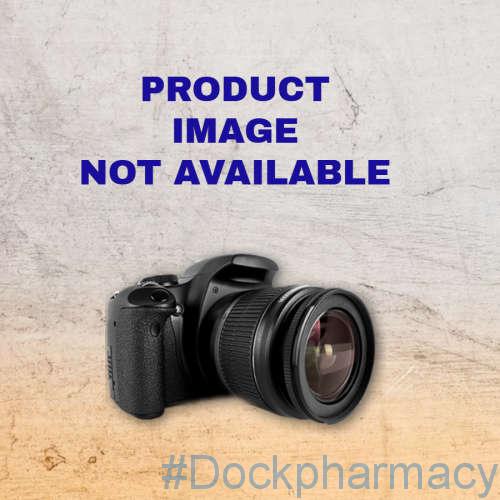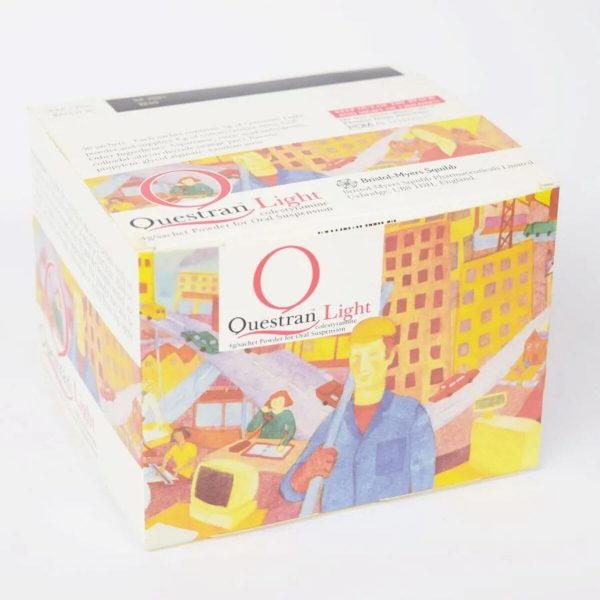Amantadine Syrup 50mg/5ml, 150ml
Original price was: £230.55.£190.00Current price is: £190.00.
CompareCompare- Description
- Additional Information
- Brand
- How To Use
- Product Details
- Side Effects
- Ingredients
- How to Store
- Patient Information leaflet
- Reviews (0)
- Questions & Answers
Amantadine Syrup 50mg/5ml, 150ml
Amantadine Syrup is a powerful dopaminergic drug that can increase the levels of certain chemicals that transmit impulses in the nervous system, including the brain. It is also an antiviral medicine, which works against influenza A infections by stopping the virus from reproducing. Amantadine Solution is a highly effective medication that it can be used to treat cats and dogs when prescribed by a vet.
Amantadine Solution can be used:
– to treat Parkinson’s disease by improving muscle control and reducing stiffness, shakiness and shuffling
– to prevent, or treat the signs and symptoms of, certain influenza (‘flu’) infections (type A)
– to reduce the pain caused by shingles (herpes zoster), a blistering skin rash caused by the same virus that causes chickenpox (the varicella zoster virus)
Amantadine Syrup Reviews
After using Amantadine Syrup, it’s helpful to let others know about your experience. Reviews of an item help other users know that medicines received have helped the condition it is claimed for, how well the treatment worked or any issues to be aware of. We invite our users to leave a review of both their treatment and of the service provided. Click on the reviews tab to see if there has been feedback on this item.
What is the price of Amantadine Syrup?
The price of Amantadine Syrup is £150.50
Where can you buy Amantadine Syrup?
You can buy Amantadine Syrup at Dock Pharmacy Essex UK, UK Online Pharmacy.
Can you buy Amantadine Syrup Over the counter?
Amantadine Syrup is not available to buy over the counter. You need a prescription to buy Amantadine Solution.
| Brand | |
|---|---|
Brand
AMANTADINE
How To Use
How to take Amantadine Solution
Always take this medicine exactly as your doctor has told you.
Check with your doctor or pharmacist if you are not sure.
The box containing this medicine contains a plastic measuring cup.
The cup is marked in ml (millilitres) to help you measure out the correct amount.
Take your medicine using the measuring cup and rinse it out with water after each use
Doses
The dose of Amantadine Solution depends on what it is used for.
The recommended doses are as follows, although your doctor may give you a lower dose if you have kidney problems.
Product Details
What you need to know before you take Amantadine Solution
Do not take Amantadine Solution if: – you are allergic to amantadine hydrochloride or any of the other ingredients of this medicine (listed in section 6) – you have epilepsy or have ever had fits (convulsions) – you have ever had an ulcer in your stomach or small intestine – you suffer from any serious kidney disease – you are pregnant or trying to become pregnant (see section 2 Pregnancy and breastfeeding) – you are breastfeeding (see section 2 Pregnancy and breastfeeding) If any of the above applies to you, or if you are not sure, speak to your doctor or pharmacist before you take Amantadine Solution. Warnings and precautions Talk to your doctor before taking Amantadine Solution if you: – suffer from any liver or kidney disease – have a history of disease involving the heart and blood vessels – are currently suffering from heart problems or heart failure (heart problems which cause shortness of breath or ankle swelling) – have problems thinking clearly or quickly, feel disorientated; find it difficult to pay attention, make decisions or remember things – sometimes see, hear, feel, smell or taste things that are not really there (have hallucinations) – have any form of mental health problem, for example schizophrenia, dementia – have glaucoma (increased pressure in the eye) If any of the above applies to you, or if you are not sure, speak to your doctor or pharmacist before you take Amantadine Solution. Tell your doctor if you or your family/carer notices that you are developing urges or cravings to behave in ways that are unusual for you and you cannot resist the impulse, drive or temptation to carry out certain activities that could harm yourself or others. These are called impulse control disorders and can include behaviours such as addictive gambling, excessive eating or spending, an abnormally high sex drive or an increase in sexual thoughts or feelings. Your doctor may need to adjust or stop your dose of Amantadine Solution. If blurred vision or other visual problems occur please contact an eye doctor immediately. If you have any thoughts or feelings about harming or killing yourself tell your doctor or go to a hospital straight away. There have been reports of people taking amantadine attempting to take their own life. Children Do not give this medicine to children under the age of 3 years old, unless advised by your doctor or pharmacist. There have been reports of children developing hypothermia when taking amantadine. Hypothermia is a dangerous drop in body temperature below 35°C. Early signs include cold and pale skin, shivering, slurred speech, fast breathing, tiredness, confusion. If this medicine has been prescribed for a child, and he/ she shows any signs of hypothermia seek immediate medical help. Do not stop taking Amantadine Solution suddenly without discussing it with your doctor first. Abrupt discontinuation could cause your condition to worsen or for you to have withdrawal effects which could be serious (see section 3 ‘If you stop taking Amantadine Solution’ for further information). Other medicines and Amantadine Solution Tell your doctor or pharmacist if you are taking, have recently taken or might take any other medicines. This includes medicines obtained without a prescription and herbal medicines. This is because amantadine may affect the way some medicines work. Also some medicines can affect the way amantadine works. In particular tell your doctor or pharmacist if you are taking any of the following: • medicines called antimuscarinics or anticholinergics, which affect the way nerve cells function in order to treat certain medical conditions. They include medicines used for Parkinson’s disease e.g. procyclidine, orphenadrine; irritable bowel syndrome and diverticular disease e.g. dicycloverine, hyoscine, propantheline; asthma and chronic obstructive pulmonary disease (COPD) e.g ipratropium, tiotropium; incontinence e.g. oxybutynin, tolterodine, flavoxate • levodopa, used to treat Parkinson’s disease • medicines called antipsychotics, used to help people feel calmer and improve thoughts, feelings and behaviour when disturbed due to conditions such as schizophrenia, mania, delirium. Examples of antipsychotic medicines include chlorpromazine, flupentixol, zuclopenthixol, haloperidol, quetiapine, risperidone • medicines called diuretics (water tablets), used to relieve water retention and reduce high blood pressure e.g. medicines containing hydrochlorothiazide and amiloride or triamterene Amantadine Solution with alcohol Be careful when drinking alcohol whilst taking Amantadine Solution. This is because it may affect you more than usual and can also increase the chances of you getting side effects from amantadine. Pregnancy and breastfeeding Do not take Amantadine Solution if you are pregnant or trying to become pregnant. Do not take Amantadine Solution if you are breastfeeding because amantadine passes into breast milk and could harm your baby. If you are pregnant or breastfeeding, think you may be pregnant or are planning to have a baby, ask your doctor or pharmacist for advice before taking this medicine. Driving and using machines Do not drive whilst taking this medicine until you know how this medicine affects you. Amantadine Solution may cause side effects that affect your ability to drive safely. For example, it may affect your vision or concentration, make you feel dizzy or confused (see section 4). If this happens do not drive or use any tools or machines. If you are in any doubt about whether it is safe for you to do a particular activity, talk to your doctor. Amantadine Solution contains Sorbitol (E420), Sodium benzoate (E211), Ethanol, Propylene glycol (E1520) and Benzyl alcohol: This medicine contains up to 6.5 g sorbitol in each 10 ml dose. Sorbitol is a source of fructose. If your doctor has told you that you (or your child) have an intolerance to some sugars or if you have been diagnosed with hereditary fructose intolerance (HFI), a rare genetic disorder in which a person cannot break down fructose, talk to your doctor before you (or your child) take or receive Amantadine Solution. Sorbitol may cause gastrointestinal discomfort and a mild laxative effect. This medicine contains 20 mg sodium benzoate in each 10 ml dose. Sodium Benzoate may increase jaundice (yellowing of the skin and eyes) in newborn babies (up to 4 weeks old). This medicine contains less than 1mmol sodium (23 mg) per 10 ml dose, that is to say essentially ‘sodium-free’. This medicine contains small amounts of ethanol (alcohol), less than 100 mg per 10 ml dose. This medicine contains up to 12 mg propylene glycol in each 10 ml dose. If this medicine has been prescribed for a baby that is less than 4 weeks old, talk to your doctor or pharmacist before giving them this medicine, in particular if the baby is given other medicines that contain propylene glycol or alcohol. This medicine contains 12 mg benzyl alcohol in each 10 ml dose. Benzyl alcohol may cause allergic reactions and has been linked with the risk of severe side effects including breathing problems (called “gasping syndrome”) in young children. Do not give to your newborn baby (up to 4 weeks old), unless recommended by your doctor. Do not use for more than a week in young children (less than 3 years old), unless advised by your doctor or pharmacist. Ask your doctor or pharmacist for advice if you have a liver or kidney disease or if you are pregnant or breastfeeding. This is because large amounts of benzyl alcohol can build-up in your body and may cause side effects (called “metabolic acidosis”).
Side Effects
Possible side effects
Like all medicines, this medicine can cause side effects, although not everybody gets them. If you experience any of the following serious side effects, tell your doctor immediately or go to the nearest hospital accident and emergency department • dizziness or light-headedness • fainting • seizures (fits) Other possible side effects: Very common side effects (may affect more than 1 in 10 people): • swollen ankles • A blotchy, reddish-blue to purple discolouration of the skin, resembling a net or lace-like pattern Common side effects (may affect up to 1 in 10 people): • loss of appetite • anxiety • depression • feeling tired • feeling overexcited • hallucinations (seeing, hearing, feeling, smelling or tasting things that are not really there) • difficulty in controlling movements • blurred vision • feeling or being sick • difficulty concentrating • feeling nervous • difficulty sleeping • muscle pain • headache • nightmares • slurred speech • feeling your heartbeat • dry mouth • constipation • sweating • postural hypotension (low blood pressure, mostly when you suddenly stand up from a lying or sitting position that makes you feel dizzy or lightheaded) Uncommon side effects (may affect up to 1 in 100 people): • blurred vision Rare side effects (may affect up to 1 in 1,000 people): • confusion • disturbed thoughts or behaviour such as feeling paranoid • fever, muscle stiffness, muscle pains, vomiting, sweating, dark urine – these may be symptoms of a serious condition known as neuroleptic malignant syndrome; • unintentional passing of urine (leakage), not being able to empty the bladder completely • disorientation (not knowing where you are) • shaking • diarrhoea • skin rash • problems with your eyes such as itchiness, redness and not being able to see clearly • unusual uncontrollable movements • corneal lesion, corneal oedema, reduced visual acuity Very rare side effects (may affect up to 1 in 10,000 people): • heart problems which can cause shortness of breath or ankle swelling • reduction in the number of white blood cells which makes infections more likely • changes in blood tests which show how the liver is working • a red, itchy or burning skin rash on areas of skin exposed to sunlight Not known side effects (frequency cannot be estimated from the available data): • restlessness, having illusions and not making sense; a condition known as delirium • decreased need for sleep, with heightened mood (either euphoric or irritable), feel extremely outgoing, with a great deal of energy more than normal; a condition which depending on its extent is known as hypomanic state or mania • urge to behave in an unusual way – strong impulse to gamble excessively, altered or increased sexual interest, uncontrollable excessive shopping or spending, binge eating (eating large amounts of food in a short time period) or compulsive eating (eating more food than normal and more than is needed to satisfy your hunger) Additional side effects in children There have been reports of children developing hypothermia (an abnormally low body temperature, below 35ºC) but the frequency cannot be estimated from the available data. Reporting of side effects If you get any side effects, talk to your doctor or pharmacist. This includes any possible side effects not listed in this leaflet. You can also report side effects directly via the Yellow Card Scheme Website: www.mhra.gov.uk/yellowcard or search for MHRA Yellow Card in the Google Play or Apple App Store. By reporting side effects, you can help provide more information on the safety of this medicine.
Ingredients
What Amantadine Solution contains
– The active substance is amantadine hydrochloride.
Each 5 ml contains 50 mg amantadine hydrochloride.
– The other ingredients are sodium benzoate (E211), sorbitol (E420), raspberry flavour containing ethanol, propylene glycol (E1520) and benzyl alcohol, citric acid monohydrate and purified water.
How to Store
How to store Amantadine Solution
Keep this medicine out of the sight and reach of children. Do not use this medicine after the expiry date which is stated on the packaging carton after EXP. The expiry date refers to the last day of that month. Store below 25°C Store in the original bottle, in order to protect from light. Any unused oral solution should be discarded one month after first opening the bottle Do not throw away any medicines via wastewater or household waste. Ask your pharmacist how to throw away medicines you no longer use. These measures will help protect the environment.
Patient Information leaflet
Click here for the Patient Information leaflet
Please read before using the product
Only logged in customers who have purchased this product may leave a review.
Questions and answers of the customers
There are no questions yet, be the first to ask something for this product.
Other Products From This Seller
- Validated for 2-8°C for 30 to 36 hrs*
- Perfect for long-haul flights
- Carries pens, bottles, vials and syringes
- Manufactured from excellent quality materials
£102.50
- Availability: in stock
- Validated for 2-8°C for 18 to 24hrs*
- Perfect for long haul flights
- Carries pens, bottles, vials and syringes
- Integrated digital thermometer
- Manufactured from excellent quality materials
£69.45
- Availability: in stock
- Validated for 2-8°C for 15 to 20hrs*
- Perfect for long haul flights
- Carries pens, bottles, vials and syringes
- Integrated digital thermometer
- Manufactured from excellent quality materials
£54.50
- Availability: in stock
Steglatro Tablets – Ertugliflozin Tablets available in 2 strengths:
- Steglatro 5mg Tablets – Ertugliflozin 5mg Tablets
- Steglatro 15mg Tablets – Ertugliflozin 15mg Tablets
£49.50
- Availability: in stock
Original price was: £43.20.£39.50Current price is: £39.50.
Ursodeoxycholic Acid Tablets 250mg – Cholurso Tablets, 60 Tablets Introducing Cholurso Tablets the brand name of Ursodeoxycholic Acid Tablets 250mg – Your Solution for Gallstone Management and Liver Health Ursodeoxycholic Acid 250mg Tablets is a cutting-edge pharmaceutical formulation designed to positively influence bile composition, making it a versatile solution for various health concerns. Ursodeoxycholic Acid, […]
Learn MoreOriginal price was: £43.20.£39.50Current price is: £39.50.
- Availability: in stock
£156.00 – £210.00
Please note you need insulin pen needles to use Mounjaro Injection
Mounjaro Injection – Tirzepatide Injection, 4 Pre-filled Pens
Available in 6 strengths:
- Mounjaro 2.5mg Injection
- Mounjaro 5mg Injection
- Mounjaro 7.5mg Injection
- Mounjaro 10mg Injection
- Mounjaro 12.5mg Injection
- Mounjaro 15mg Injection
Learn More
£156.00 – £210.00
- Availability: in stock
Timoptol LA Gel – Timolol Eye Gel is available in 2 strengths
- Timoptol LA 0.5% Gel
- Timoptol LA 0.25% Gel
£7.50
- Availability: in stock
Original price was: £43.50.£39.75Current price is: £39.75.
One-Alpha Drops 2mcg/1ml – Alfacalcidol Drops 2mcg/1ml
Learn MoreOriginal price was: £43.50.£39.75Current price is: £39.75.
- Availability: in stock
Original price was: £5.99.£5.39Current price is: £5.39.
Ideal for irrigating and cleansing the eye, or a wound
Learn MoreOriginal price was: £5.99.£5.39Current price is: £5.39.
- Availability: in stock
Ultimate Surefit Erection Ring Set 15222 – Constrictor Rings For Erectile Dysfunction Experience Confidence and Pleasure with the Ultimate Surefit maintenance ring set – Your Key to Intimate Well-being Introducing the Ultimate Surefit Erection Ring, a premium solution meticulously designed for those seeking to overcome the challenges of erectile dysfunction. Crafted with precision and comfort […]
Learn More£58.50
- Availability: in stock

















Reviews
There are no reviews yet.